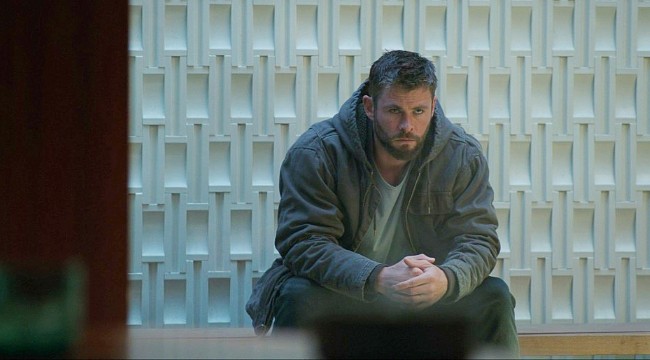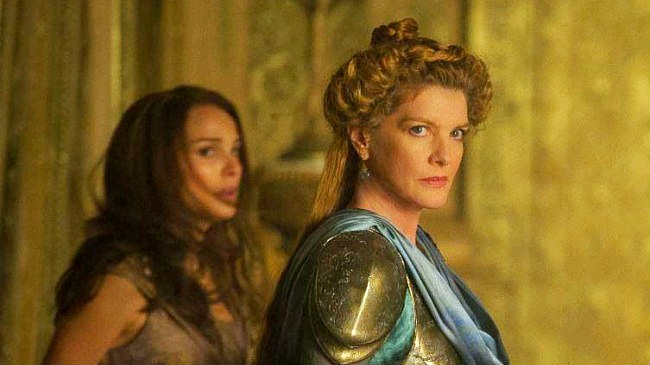
WARNING: This article contains spoilers for Avengers: Endgame.
While promoting Thor: Ragnarok — the third Thor-centric film from Marvel Studios and, per the latter’s practices with the Iron Man and Captain America trilogies, the end of the character’s tri-part story arc — Kevin Feige mentioned that it and the next two Avengers film would contain an “unofficial Hulk trilogy.” However, the studio president and producer later clarified to Uproxx that this wasn’t entirely the case.
“I wouldn’t call Ragnarok and the next Avengers movies an unofficial Hulk trilogy,” he told Mike Ryan, “but I would say that there is a character arc for Hulk within those three movies that, yes, track together by design.”
By the end of Avengers: Endgame, however, it seems Feige’s focus on Mark Ruffalo’s Dr. Jekyll and Mr. Hyde-like personas was misplaced, though that’s not a dig at that actor’s excellent work. Rather, I say this because Ragnarok, Infinity War and the latest Avengers tentpole feel more like an unofficial — and far, far better — Thor trilogy than the one that Marvel actually made. Writers Taika Waititi, Christopher Markus, and Stephen McFeely managed to craft something for the more comedically-inclined Chris Hemsworth that not only better uses his skills as an actor, but also gifts moviegoers with a more dramatically satisfying story for the character.
Of course, it’s not like Feige and company were being secretive about their intentions. As Waititi put it in an interview from the Ragnarok home release extras, “When Marvel approached me, they said, ‘We wanna change up the franchise. We wanna take Thor in a new direction.'” In the same extra, Hemsworth remarked that “the character felt different,” while Feige and executive producer Brad Winderbaum insisted that these changes had more to do with the character’s exposure to the other Avengers. This is undoubtedly true, but it is by no means the whole story. More than anything, Ragnarok and what followed indicated that Hemsworth, Feige and everyone else at Marvel wanted to move past the first two films’ attempts at more Shakespearean or Game of Thrones-esque sensibilities. For the most part, at least, because this unofficial trilogy does rely, in part, on Thor: The Dark World.
One of the more satisfying (and seemingly impossible) aspects of Endgame‘s sprawling length is its dedication to delivering as many payoffs as possible for its original characters. Tony Stark (Robert Downey Jr.) and Steve Rogers (Chris Evans) are the two most obvious cases in this regard, while Clint Barton (Jeremy Renner), Natasha Romanoff (Scarlett Johansson), and Bruce Banner (Ruffalo) get plenty of mostly satisfying nods. Yet above it all rests Hemsworth’s Thor, who has suffered a godly amount of loss and betrayal since Ragnarok‘s final moments, and to drive this point home, Endgame thrusts him back into Dark World‘s action for an incredibly moving reason.
Yes, that’s right. In one of the second act’s many nostalgic time-traveling adventures, Thor and Rocket (Bradley Cooper) venture to Dark World-era Asgard in order to retrieve the reality stone — then dubbed the “aether” — from Jane Foster (Natalie Portman). Once the pair arrives, however, it becomes abundantly clear that Thor is in no shape to be there. Sure, he has physically let himself go, but that’s just a symptom of the problem. He’s been in mourning since Ragnarok, and the events of Infinity War and Endgame have done nothing to rectify this. If anything, they’ve only made it worse.

Since Thor hadn’t “gone for the head” at the end of Infinity War, Thanos (Josh Brolin) managed to snap away half of existence. He eventually follows the villain’s advice at the beginning of Endgame, but his killing blow is simply an act of vengeance. As a result, he feels responsible for the monumental loss of life, and compounded with the collective losses of his father, Asgard, half his own people and his brother Loki (Tom Hiddleston), Thor is in no way able to deal with his feelings of grief in an appropriate manner. Hence the booze, snacks, and hours of endless online videogame play with Korg (Waititi) and Miek.
Enter Frigga (Rene Russo), Thor’s late mother. She was killed in Dark World by the invading Dark Elves and, as a result, was one of the first major losses he would suffer before everything else he would endure. So when he realizes that she’s nearby, Thor loses his composure and tells Rocket he shouldn’t have come. He even tries to return to their time back on Earth, but not before the non-raccoon manages to briefly slap some sense into him. It doesn’t work, however, and Thor escapes briefly until finally running into Frigga.
Endgame is rife with emotional payoffs and moving scenes that will leave most audiences in tears, and Thor’s run-in with his mother deserves to be considered one of the film’s best. She quickly realizes he’s not her Thor, joking that she was “raised by witches,” and with the loving intelligence that only a mother could employ, helps him begin to come to terms with everything he has lost and everything he has to gain. “This isn’t about who you’re supposed to be,” she tells him when he doubts his heroism. “It’s about who you are.”
Frigga is the first person throughout the entire film to stop and listen to what Thor has to say about what he’s been feeling, thereby rendering her words all the more impactful. As a result, the would-be Asgardian king finally realizes what the character has spent the past three movies coming to terms with — who he is. He’s meant to be the king of Asgard, but this is a duty that has never felt right to him. He’s an Avenger. He’s a hero. None of this is who we was meant to be, of course. It’s just who the character is.
